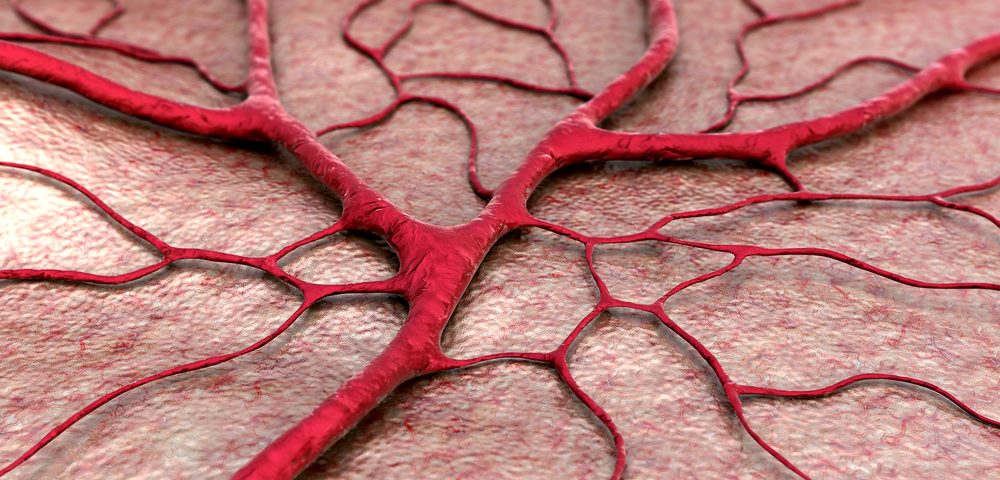Treating endometriosis lesions with rapamycin, an inhibitor of the mTOR signaling pathway, may reduce lesion size through inhibition of blood vessel growth, as demonstrated in endometriosis animal models by researchers at the Southern Medical University and at the Guangzhou Red Cross Hospital in China.
The study, “Effect of rapamycin on endometriosis in mice,” was recently published in the journal Experimental and Therapeutic Medicine.
Little is known about the mechanisms that lead to the development of endometriosis, which has hindered the development of effective therapies for patients. The mTOR pathway has been demonstrated to regulate certain cancers and has been linked with the occurrence and development of endometriosis. Blocking mTOR in mice was shown to reduce deep infiltrating endometriosis nodules, but its underlying mechanism remains unclear.
Researchers assessed the effect of rapamycin in mice models of endometriosis to understand whether mTOR inhibition could potentially be used on women with endometriosis. Mice models were generated through injection of endometriosis cells collected from human patients into the animals’ abdominal cavity, and the development of endometriosis lesions and blood vessel density within the lesions were assessed.
Results showed that rapamycin injection into the lesions significantly decreased lesion volume. This effect was most likely due to the decreased levels of VEGF and HIF-1α, two proteins that regulate the process of blood vessel growth, or angiogenesis. HIF-1α, which induces VEGF expression, has already been demonstrated to be involved in the process of angiogenesis in endometriosis.
Consistently, the researchers found that microvessel density in the lesions of rapamycin-treated mice was significantly reduced.
These findings reinforce the importance of angiogenesis in the occurrence and development of endometriosis. Excessive angiogenesis, usually caused by high amounts of VEGF, may be critical for the ectopic implantation and growth of endometrial cells, resulting in endometriotic lesions. mTOR is involved in a number of physiological functions, including the regulation of pro-angiogenic factors like VEGF. Aberrant activation of mTOR in tumors has been shown to promote angiogenesis, contributing to tumor growth.
Now, the researchers revealed that mTOR inhibition significantly decreased angiogenesis, which halted the development of endometriotic lesions. The findings suggest that mTOR inhibitors may have therapeutic potential in women with endometriosis.

